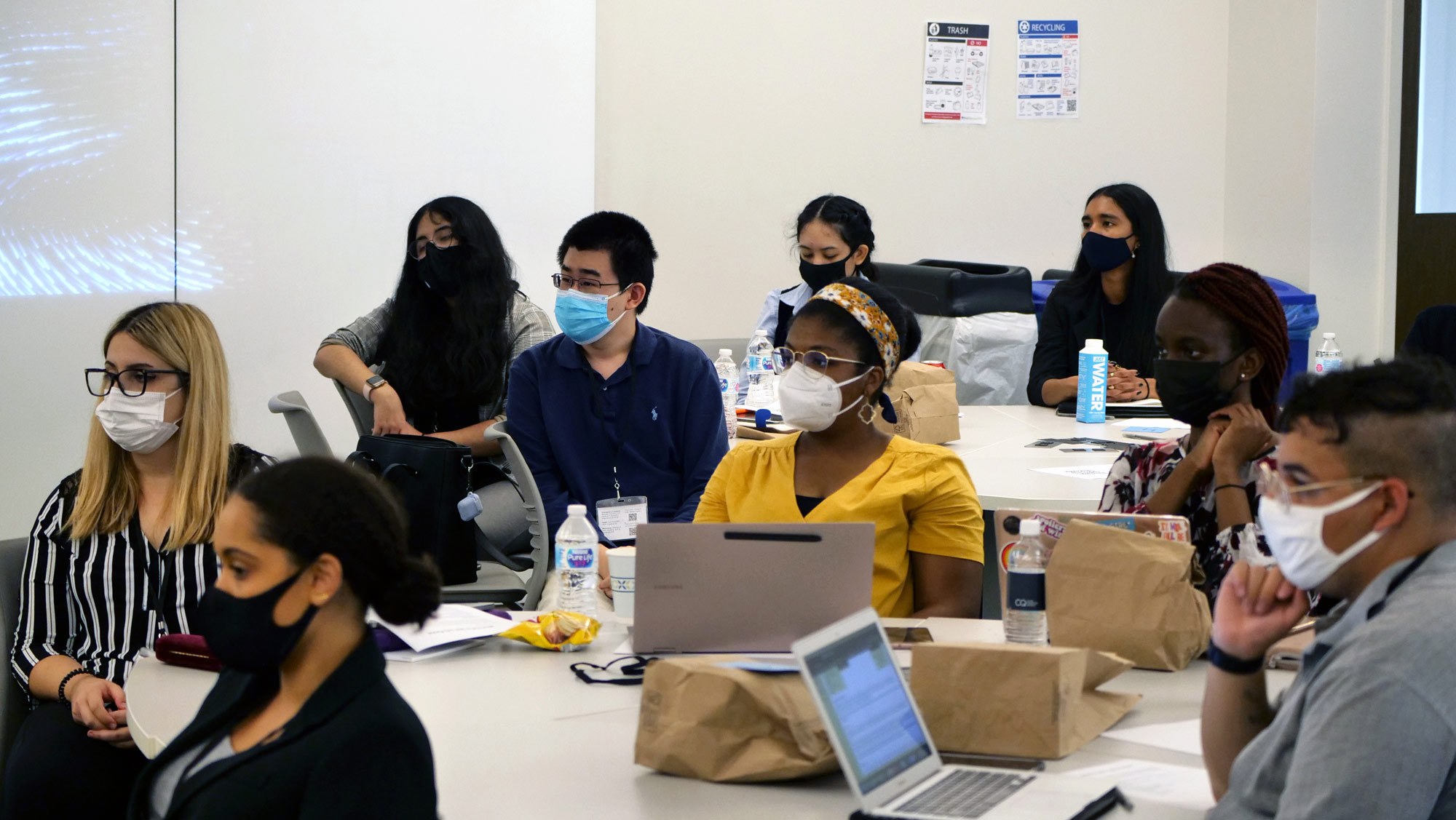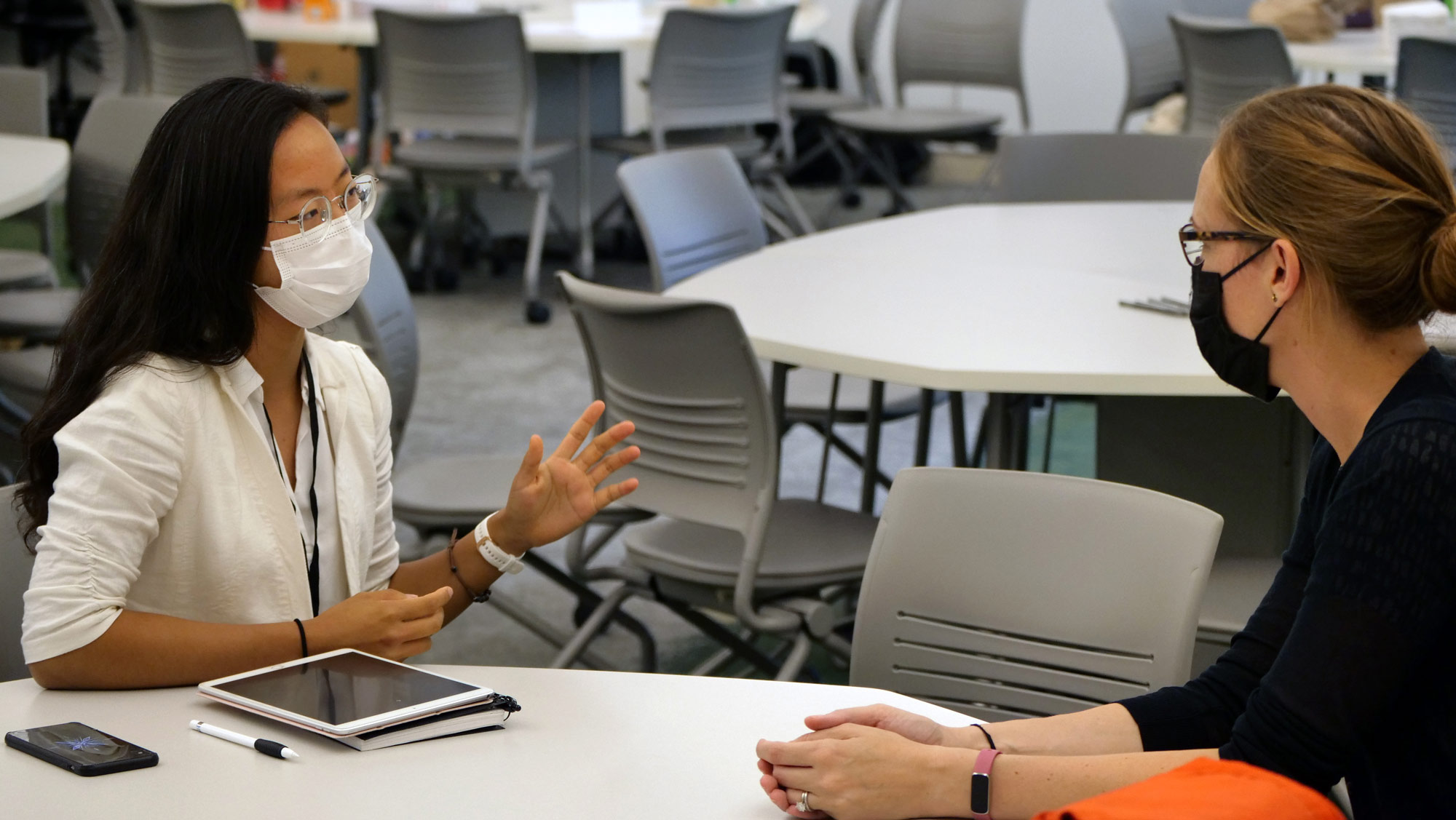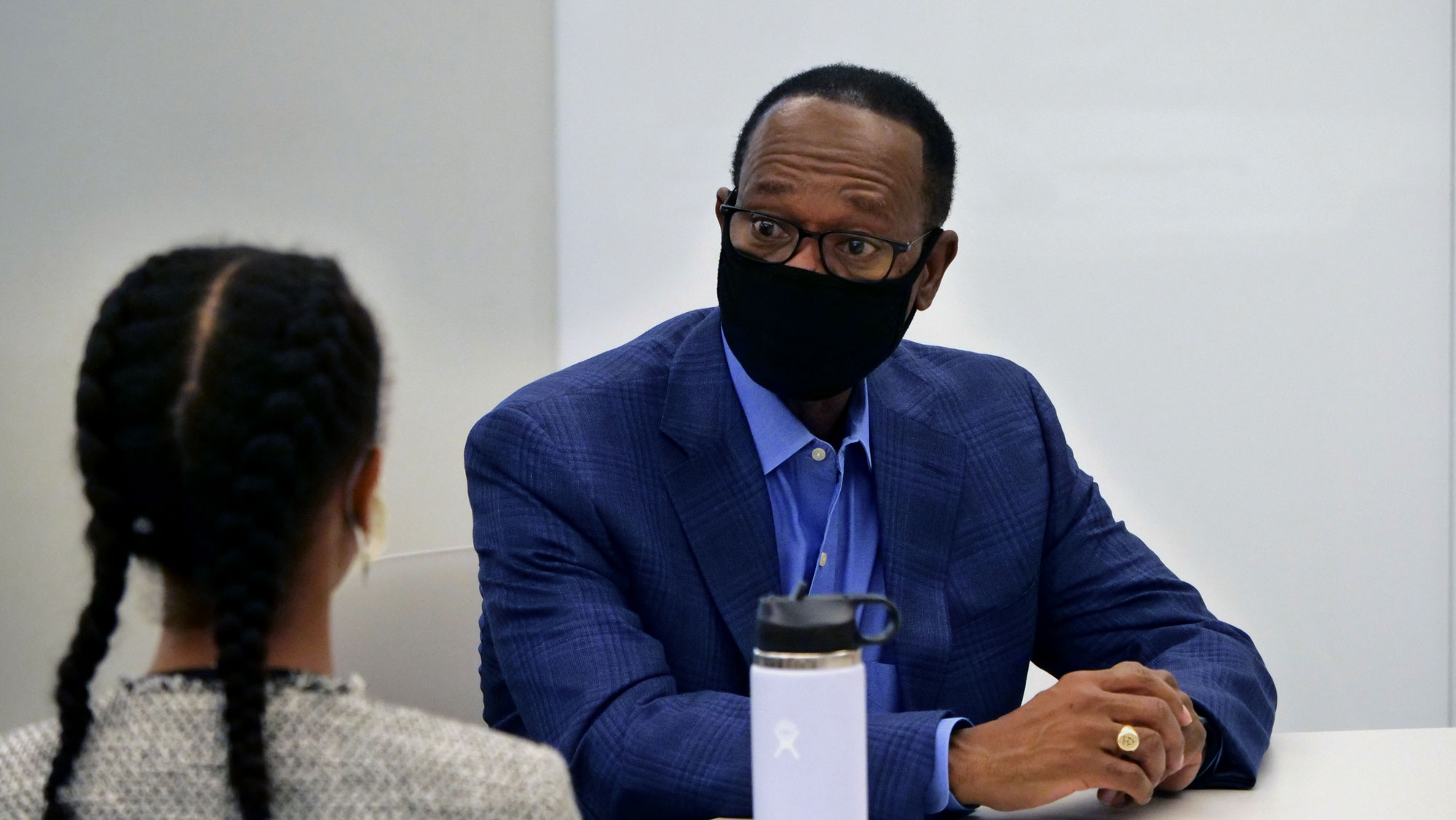Diving into the Unknown
Mind DivE In is intended to make graduate school in the sciences more accessible to minority students.

It all started with a text message.
In summer 2020, Vaida Rimeikyte texted Rista Plate, saying that they needed to find a way to make their field a more equitable place. They’re both postdoctoral fellows in psychology, and they know how challenging it is to even apply to graduate school, never mind to complete it. In addition to rigorous academics, graduate school is filled with what they call a “hidden curriculum,” things students may not even know they don’t know.
Rimeikyte and Plate quickly drew support from their fellow trainees and from faculty, including Angela Duckworth, Rosa Lee and Egbert Chang Professor in the Department of Psychology and the Wharton School. The result was Mind DivE In (Diversity and Equity Initiative in the Mind Sciences), an event that drew undergraduate students from institutions across the country for a weekend of in-person workshops and mentoring. Duckworth gave the keynote address, and Beth Wenger, Associate Dean for Graduate Studies and Moritz and Josephine Berg Professor in the Department of History, was on hand to talk with participants.
The event, held in early October, hosted 20 students selected from 100 applicants. The organizers initially focused their attention on regional minority-serving institutions, but word spread. They received applications from students as far away as Hawaii. The selected students were diverse in their backgrounds, locations, and levels of research experience, but united in their desire to attend graduate school.
Workshop topics included graduate school applications, recommendation letters, and wellness, as well as mock interviews and one-on-one meetings with mentors. The workshops were recorded and will serve as an online resource for all students who applied to the program. Mentors will continue to act as resources and sounding boards as students continue their undergraduate education and look toward grad school. Plate and Rimeikyte acknowledge that they can’t eliminate disadvantages in a single weekend, but they hope DivE In can help make some of that hidden curriculum more accessible.
Plate, who studies social learning and emotional development, explains, “In psychology, it’s conventional to reach out to prospective graduate school mentors before you submit your application. It’s a way to introduce yourself and make the case for why you would be a good fit to work with a particular faculty member. It’s not an 'official' part of the application, so if you don’t know about the convention, you’ve missed out on an opportunity.”
It is often first-generation or minority students who lack this insider knowledge. And the need for it starts well before graduate school applications.
Rimeikyte, who grew up in Lithuania, uses her own experience as an example. “You need research experience to apply to graduate school,” she says. “When I was an undergrad, a friend started working in a psychology lab. I wondered how he found out about the opportunity and he said he had just emailed the professor and asked. I was so blown away that you could email a professor with a request like that. Similarly, the cultural practice of thank you notes to faculty was unknown to me—I still find it perplexing!”
Diversity in the sciences at the graduate and professor level means helping young people from all backgrounds much earlier than the day you read their Ph.D. application.
They list many other aspects of undergraduate and graduate school that can be unknown or mysterious: how funding works, what constitutes a good letter of recommendation, and how to build relationships with mentors, among other things. This knowledge is a form of gatekeeping.
“Diversity in the sciences at the graduate and professor level means helping young people from all backgrounds much earlier than the day you read their Ph.D. application,” says Duckworth. “It means helping students still in college understand the ins and outs of the long journey to that application. It means helping them navigate that journey. It means providing models and encouragement. DivE In does all of that and more. I am so very proud to be involved.”
Funding for the event came in part from the Klein Family Social Justice Grants, a new initiative from Penn Arts & Sciences. A team of postdocs, graduate students, and faulty made the weekend possible, and Rimeikyte, who researches the behavioral and neural mechanisms behind decisions about gendered and racialized leisure and labor, hopes the event is part of something bigger.
“We wanted to make sure we weren’t just recruiting people, but giving them the tools and network they need to succeed,” she says. “In any department that these students end up in, they are likely to be a minority. And I think it is so vital for them to have the network of peers that they can connect to, share experience, and provide support. People who can say, ‘I know what this is like.’”





